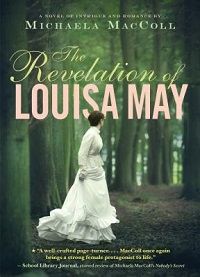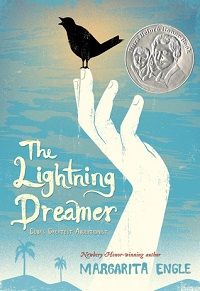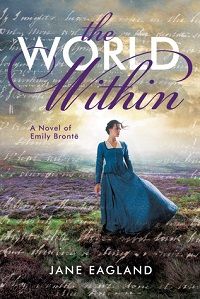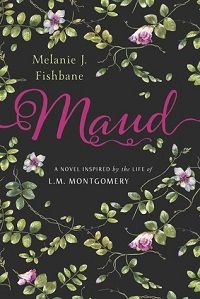
19th Century Women Writers in Young Adult Biographical Fiction
In college, I took a course called Nineteenth-Century Women Writers. The class sampled work from literary greats such as George Eliot, Charlotte Brontë, and Mary Shelley. Though the lives these women imagined for their characters were often more exciting, each still had their own stories. Some had withheld their stories during their lifetime, opting to use a pen name to avoid the disadvantages of readers identifying their work as coming from a woman. Today, you can find young adult biographical fiction that explores the lives of some of these incredible women. Here are four books of young adult biographical fiction to get you started on your journey through the hearts of some of these beloved writers:
 The Revelation of Louisa May by Michaela MacColl
The Revelation of Louisa May by Michaela MacColl
I came across this novel a few years ago in a used bookstore. The verdant cover was stunning with an image of a young Louisa May Alcott in a flowing, ethereal, white gown. MacColl pulls from Alcott’s real-life trials, focusing her plot on the Alcotts’ work on the Underground Railroad. Familiar characters such as Henry David Thoreau also make appearances. As Louisa attempts managing the family house, a murder shakes the Alcott family and the town of Concord, Massachusetts. Meanwhile, Louisa works at her writing and tries to have a successful social life while coming of age. Fans of Little Women will love this look at Alcott’s younger years.
 The Lightning Dreamer: Cuba’s Greatest Abolitionist by Margarita Engle
The Lightning Dreamer: Cuba’s Greatest Abolitionist by Margarita Engle
Margarita Engle brings Cuban abolitionist author Gertrudis Gómez de Avellaneda to life in this novel in verse, following the writer from age thirteen to twenty-two. Distraught over the treatment of slaves by society and her own family, Avellaneda works with orphans and pursues poetry, inspired by José María Heredia. As she struggles against an arranged marriage, Avellaneda forms her abolitionist beliefs and encounters romantic love for the first time. In addition to Tula’s perspective is her brother’s, mother’s, local nuns, and more. Engle borrows lines directly from Avellaneda’s work, including her famous antislavery novel, Sab.
 The World Within: A Novel of Emily Brontë by Jane Eagland
The World Within: A Novel of Emily Brontë by Jane Eagland
Spanning several years of Emily Brontë’s life, The World Within depicts Emily’s life with her siblings (Charlotte, Bran, and Anne), her father, and her aunt. Surrounded by death, Emily grieves constantly and aches to hold onto the writing games she plays with her siblings. However, her siblings have agendas for their own lives to follow, some of which includes sustaining the family. As Emily copes and endures trying real-life events, she grows as a young woman and a writer. Moments from her (fictionalized) real life will sparkle as readers recognize details from her famed Wuthering Heights.
 Maud by Melanie J. Fishbane
Maud by Melanie J. Fishbane
Based on the life of Anne of Green Gables author L. M. Montgomery, Maud follows the writer as she moves across Canada, leaving behind her good friends and potential suitors for a life with her father and stepmother. Dripping with the same beautiful landscape as in Montgomery’s writings, this young adult biographical fiction confronts the difficulty Montgomery had with her new family. Montgomery is sustained, however, by her admiration for Louisa May Alcott. With a leisurely pace, Maud takes care to examine aspects of Montgomery’s life with the same tenderness Montgomery afforded her heroines.


